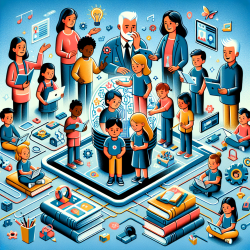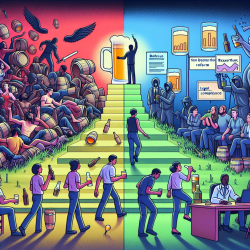Empowering Young Minds: Leveraging Digital Literacies for Future Success
As a practitioner dedicated to creating outstanding outcomes for children, understanding and implementing digital literacies is crucial. Recent research titled A qualitative analysis of publicly available Standards and Guidance about Digital Literacies in U.S. States provides significant insights into how states are incorporating digital literacies into their education policies. This blog will discuss how you can leverage these findings to improve your practice and advocate for better digital literacy standards in your schools.
Understanding Digital Literacies
Digital literacies encompass a wide array of skills and knowledge, including the ability to use technology responsibly, evaluate information critically, and create and collaborate using digital tools. The research highlighted that most states did not use guidance from professional organizations for digital literacies, with only 16 states adopting standards from the International Society for Technology in Education (ISTE).
Key Findings and Their Implications
The study found that while some states like Alabama and Connecticut have developed comprehensive digital literacy plans, many states lack formal guidance. The states that do have plans often rely on ISTE standards, which focus on digital citizenship, computational thinking, and lifelong learning skills. However, the adoption and implementation of these standards vary widely.
How Practitioners Can Implement These Findings
Here are some actionable steps you can take to improve digital literacies in your practice:
- Adopt ISTE Standards: Familiarize yourself with the ISTE standards and integrate them into your curriculum. These standards provide a comprehensive framework for teaching digital literacies.
- Advocate for Policy Changes: If your state lacks formal guidance, advocate for the adoption of digital literacy standards. Use the findings from the research to support your case.
- Professional Development: Participate in professional development opportunities focused on digital literacies. This will enhance your skills and enable you to better support your students.
- Collaborate with Colleagues: Work with other educators to share resources and strategies for teaching digital literacies. Collaboration can lead to more effective implementation of these skills in the classroom.
Encouraging Further Research
The research underscores the need for more comprehensive studies on digital literacies and their implementation. By staying informed and engaged with ongoing research, you can continue to refine your practice and advocate for policies that support digital literacy education.
To read the original research paper, please follow this link: A qualitative analysis of publicly available Standards and Guidance about Digital Literacies in U.S. States.










